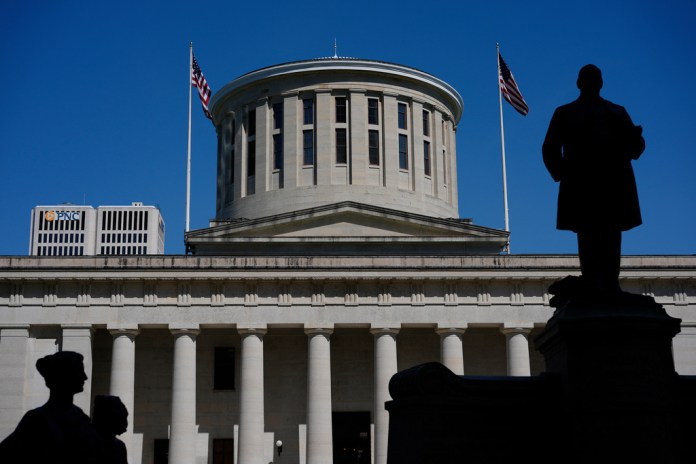ARCH2 gets $30M for hydrogen hub; critics call it a ‘boondoggle’ – Washington Examiner
The federal government has initiated funding for ARCH2, an innovative hydrogen-based manufacturing and energy hub located in Appalachia, with a first disbursement of $30 million. This funding aims to launch a multi-state project expected to receive up to $925 million from the Department of Energy (DOE), facilitating the establishment of a regional hydrogen economy in West Virginia, Ohio, and Pennsylvania. ARCH2 officials claim that this investment will stimulate significant private sector funding, lead to job creation, and revitalize communities affected by the energy transition. The hub’s primary goal is to create a sustainable ecosystem for hydrogen production while reducing emissions through electrolysis, using renewable energy or fossil fuels.
While the funding is aimed at advancing clean energy initiatives, it has drawn criticism from environmentalists and some legislators who question the feasibility of hydrogen hubs and raise concerns about legal adjustments for technologies like carbon capture. They have expressed the need for more transparency and caution regarding potential environmental impacts, especially concerning the management of carbon dioxide storage. the venture marks a significant step in developing hydrogen technology, despite the skepticism surrounding its implementation and strategic advantages.
ARCH2 gets $30M for hydrogen hub; critics call it a ‘boondoggle’
(The Center Square) — The federal government cut its first check for a multi-state experiment to build a hydrogen-based manufacturing and energy hub in Appalachia, sending $30 million to ARCH2.
The team behind the Appalachian Regional Clean Hydrogen Hub expects up to $925 million from the Department of Energy to spearhead development.
“This federal funding will unlock billions of dollars in private sector investment to create thousands of well-paying jobs in Appalachia’s emerging hydrogen economy,” ARCH2 officials said in a press release. “ARCH2 will create a clean, economically viable, and socially equitable hydrogen ecosystem within Appalachia, revitalizing local communities impacted by the energy transition.”
The hub, with its headquarters in Morgantown, West Virginia, aims to build a regional cluster in West Virginia, Ohio, and Pennsylvania of producers, consumers, and infrastructure to lower overall emissions by using hydrogen.
Using renewable energy or fossil fuels, the seven hubs scattered across the nation plan to produce hydrogen from water through an electrolysis process, then store the hydrogen until it’s used for power generation, fuel, and other industrial processes.
The $30 million will fund phase one of the hub, expected to run up to 36 months. Other money will follow for future phases if ARCH2 hits DOE-set milestones. The four phases of the hub are expected to run for more than a decade.
“Less than a year ago, ARCH2 was merely a proposal. Today, we are diligently transforming that idea into reality,” officials noted in a recent summer update. They anticipate a webinar within a month for more updates.
Pennsylvania’s other hub, MACH2 in the eastern region, awaits its first award. In June, the Department of Environmental Protection’s Citizens Advisory Council heard a presentation from officials on the hub’s benefits and timetable. CAC members asked for more information and details about the plan while public commenters urged them to be skeptical due to the public being “kept in the dark.”
Environmentalists have warned against the hydrogen hubs, calling on Gov. Josh Shapiro in May to put a pause on their development. The viability of the hubs have also been called into question, as no large-scale success stories yet exist even as hundreds of millions of dollars are flowing to the hubs from the government.
Some legislators, too, have cried foul over the legal changes made to accommodate hub-related technology like carbon capture and sequestration.
Rep. Dawn Keefer, R-Dillsburg, condemned Senate Bill 831 in July, which established a legal framework for carbon capture.
“If a Pennsylvania family’s water is contaminated by CO2 being pumped into the ground, who’s responsible? Under the carbon capture legislation, one thing is very clear: it won’t be the multi-billion dollar corporation conducting the carbon capture experimental technology,” Keefer said. “If carbon capture is so safe and proven, then why is this legislation written to protect the corporations? It’s because carbon capture is not a proven science.”
In a newsletter to her constituents, she warned carbon capture is not for the welfare of Pennsylvania, but for corporate subsidies that “runs roughshod over the rights of property owners.”
The Ohio River Valley Institute, which has urged states to make alternative investments in clean energy rather than the hydrogen hubs, called the ARCH2 hub a “boondoggle.”
“This award represents a continued commitment to invest in a natural gas industry that has added to the pollution and health burdens in the region while failing to deliver any measurable growth in jobs, income, and population,” ORVI Senior Researcher Sean O’Leary said. “At a time when we should be pursuing proven, cost-effective, job-producing decarbonization models, this decision sends us further down the path of dependency on natural gas that will result in increased taxes and utility bills.”
" Conservative News Daily does not always share or support the views and opinions expressed here; they are just those of the writer."




